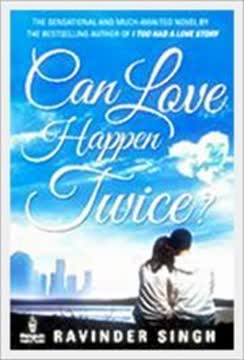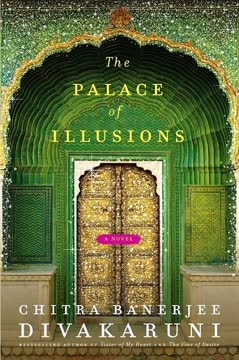Plot Summary
Mumbai's New Beginning
Rivanah Bannerjee, a recent engineering graduate from Kolkata, moves to Mumbai for her first job, leaving behind her protective parents and a long-term boyfriend, Ekansh. The city is overwhelming, but she's determined to carve out her own identity. Her arrival is marked by small but unsettling incidents—a mysterious blue kurti appears in her cab, and she receives cryptic messages from an unknown number. As she settles into her cousin Meghna's home, Rivanah is both excited and anxious, eager for independence but haunted by a sense of being watched.
The Blue Kurti Mystery
The blue kurti, which her mother claimed was lost, appears in her cab with a note addressed to her childhood nickname, "Mini." This unnerves Rivanah, especially when her mother denies sending it. The incident is dismissed as a coincidence, but it plants the first seeds of paranoia. Soon, more strange messages arrive, each more personal and intrusive, hinting that someone knows intimate details about her life. Rivanah tries to focus on her new job and relationship, but the sense of being stalked grows.
Messages From the Shadows
Rivanah's phone is bombarded with anonymous, threatening messages. The sender, calling themselves "the stranger," seems to know her every move, her fears, and her secrets. The messages escalate from cryptic warnings to direct threats, demanding she learn to cook specific dishes or face consequences. The stranger's knowledge of her life is chillingly precise, and Rivanah's attempts to ignore or outsmart the stalker only draw her deeper into the web. The line between coincidence and conspiracy blurs, and her sense of safety erodes.
Love, Distance, and Deceit
Rivanah's relationship with Ekansh, her college sweetheart, is strained by distance and the pressures of her new life. Their rare meetings are passionate but tinged with insecurity. As she tries to build a life in Mumbai, she leans on Ekansh for emotional support, but cracks begin to show. The stranger's interference intensifies, and Rivanah's trust in those around her is tested. When she discovers Ekansh's infidelity—caught red-handed with another woman, thanks to the stranger's intervention—her world shatters. The fairy-tale romance is exposed as a lie.
The Stranger's First Threat
The stranger's threats move from digital to physical. Rivanah is attacked in her own home—blindfolded, tied up, and stripped by an unseen assailant who leaves her unharmed but deeply traumatized. The experience is both terrifying and confusing, as the stranger seems to want to teach her a lesson rather than harm her. The incident leaves her questioning her own reality, her relationships, and her ability to trust anyone. The stranger's power over her is now absolute.
Roommates and Revelations
Rivanah moves into a flat with two roommates: the wild, free-spirited Ishita and the secretive Asha. The trio's dynamic is complex—while Ishita becomes a confidante and source of strength, Asha remains an enigma. The stranger's presence persists, with hidden microphones disguised as cockroaches found in their flat. Rivanah's paranoia grows, but so does her resolve. She begins to fight back, seeking help from friends and the police, but the stranger always seems one step ahead.
The Stalker Escalates
The stranger's games become more elaborate and cruel. Rivanah is blackmailed by Prateek, a former school acquaintance and now HR colleague, who records a compromising video of her and threatens to release it unless she submits to his demands. The stranger intervenes, orchestrating Prateek's humiliation and giving Rivanah leverage to escape the blackmail. Yet, the stranger's help comes at a price—he demands she become a witness in a gangrape case she inadvertently witnessed, forcing her to confront her own courage and morality.
Heartbreak and Healing
The aftermath of Ekansh's betrayal and Prateek's blackmail leaves Rivanah emotionally battered. With Ishita's support, she begins to rebuild her sense of self, channeling her pain into personal growth. She learns to cook, stands up for herself at work, and starts teaching underprivileged children as part of the stranger's "share your good luck" project. These acts of kindness and self-assertion help her reclaim agency over her life, even as the stranger's shadow looms.
Prateek's Obsession Unleashed
Prateek's obsession with Rivanah spirals into harassment and public humiliation. He spreads rumors at work, sends her unwanted gifts, and tries to manipulate her emotionally. With the stranger's guidance, Rivanah turns the tables, exposing Prateek's vulnerabilities and ending his campaign of harassment. The episode cements her transformation from passive victim to active fighter, but also deepens her entanglement with the stranger, whose motives remain ambiguous.
The Stranger's Demands
The stranger's next demand is not for Rivanah's humiliation or fear, but for her to do good: to teach slum children to write their names in English. Initially resentful, she soon finds fulfillment in the task, discovering a sense of purpose and connection she never expected. The stranger's influence becomes paradoxical—he is both tormentor and benefactor, pushing her to grow through adversity. Yet, the threat of exposure and the mystery of his identity keep her on edge.
Courage in the Darkness
Rivanah's journey is punctuated by acts of bravery—testifying in court as a witness to the gangrape, standing up to workplace harassment, and confronting her own trauma. Each challenge is orchestrated or manipulated by the stranger, who seems intent on forcing her to "know her worth." The police become involved, but the stranger's cunning and technological prowess keep him elusive. Rivanah's nightmares intensify, haunted by visions of herself hanging from a ceiling fan—a symbol of her deepest fears.
A New Love Blooms
Amidst the chaos, Rivanah finds solace and love in Danny, her charismatic neighbor. Their relationship is passionate and healing, offering her a chance at happiness after heartbreak. Yet, the stranger's interference continues—gifts, messages, and manipulations designed to test her loyalty and resolve. The tension between her desire for normalcy and the ever-present threat of the stranger creates a constant undercurrent of anxiety.
The Stranger's Games Continue
Rivanah's parents visit, bringing with them the weight of tradition and expectations. They disapprove of Danny, preferring a "suitable" Bengali match. The stranger exploits these tensions, orchestrating situations that force Rivanah to confront her values and assert her independence. The struggle between personal happiness and familial duty becomes a central theme, as Rivanah fights to define her own identity.
Family, Culture, and Conflict
Back in Kolkata for a cousin's wedding, Rivanah is introduced to Abhiraj, a prospective suitor. The encounter is both comic and poignant, highlighting the generational and cultural divides that shape her life. Abhiraj's later appearance in Mumbai, and his own attempts to woo her, add another layer of complexity to the web of relationships and suspicions surrounding the stranger's identity.
The Trap and the Wrong Man
With the police's help, Rivanah sets a trap for the stranger, using social media to lure him into the open. The plan succeeds—seemingly. Abhiraj is caught and accused, but it quickly becomes clear he is not the real stalker. The true stranger remains at large, having manipulated events to frame Abhiraj and mislead both Rivanah and the authorities. The sense of danger intensifies, as the stranger's reach and cunning are revealed to be even greater than imagined.
The Real Stranger Revealed
The investigation leads to the discovery that the stranger had been living in the flat above Rivanah's, eavesdropping on her life. A series of clues—embroidered messages, a doorbell that plays a girl's laughter, and references to her childhood nickname—point to a connection from her past. Rivanah's mother helps her uncover a slam book entry from college, written by Hiya Chowdhury, a friend who had committed suicide. The details in Hiya's entry—her hobbies, ambitions, and favorite dishes—mirror the stranger's demands and the events of the past year.
The Past Returns
The realization that the stranger's actions are linked to Hiya's death—and perhaps to Rivanah's own forgotten or repressed actions—leaves her shaken. The book ends on a cliffhanger, with Rivanah determined to return to Kolkata to uncover the truth about Hiya, the stranger, and her own role in the unfolding drama. The line between victim and perpetrator, past and present, is blurred, setting the stage for the next installment in the trilogy.
Characters
Rivanah Bannerjee
Rivanah is a young woman thrust into the chaos of Mumbai, seeking independence but quickly ensnared in a psychological game of cat and mouse. Her journey is one of transformation—from naïve and trusting to wary and self-reliant. She is deeply affected by love, betrayal, and trauma, but each setback becomes a catalyst for growth. Her relationships—with family, friends, lovers, and the stranger—reveal her vulnerabilities and strengths. Rivanah's psychological arc is defined by her struggle to "know her worth," as she confronts her fears, asserts her agency, and seeks meaning in adversity.
The Stranger
The stranger is both tormentor and teacher, orchestrating events in Rivanah's life with chilling precision. His motives are complex—part obsession, part moral crusade, part personal vendetta. He uses technology, psychological manipulation, and intimate knowledge of Rivanah's past to control and "educate" her. The stranger's identity remains hidden, but clues suggest a connection to Hiya Chowdhury and a desire to force Rivanah to confront her own guilt and potential complicity. He embodies the dangers of anonymity and the power of secrets.
Ekansh Tripathi
Ekansh is Rivanah's college sweetheart, whose apparent devotion masks infidelity and emotional cowardice. His betrayal is the first major trauma Rivanah faces in Mumbai, shattering her illusions about love and trust. Ekansh's actions force Rivanah to reevaluate her self-worth and set her on a path of self-discovery. He represents the dangers of idealizing relationships and the pain of disillusionment.
Danny Abraham
Danny is Rivanah's neighbor and eventual lover, offering her a chance at happiness after heartbreak. He is supportive, passionate, and seemingly genuine, but his relationship with Rivanah is constantly tested by the stranger's interference and the scars of her past. Danny's own struggles—with career, family, and commitment—mirror Rivanah's, making their bond both comforting and precarious.
Ishita Rana
Ishita is Rivanah's roommate and confidante, embodying a carefree, nonconformist approach to life. She encourages Rivanah to break free from societal expectations and embrace her own desires. Ishita's own history of heartbreak and resilience provides a counterpoint to Rivanah's journey, and her loyalty is instrumental in helping Rivanah survive the stranger's games.
Prateek Basotia
Prateek is a former school acquaintance turned HR colleague, whose unrequited love for Rivanah devolves into harassment and blackmail. His actions serve as a warning about the dangers of obsession and entitlement, and his eventual downfall is orchestrated by both Rivanah and the stranger. Prateek's arc highlights the complexities of victimhood and agency.
Meghna
Meghna provides Rivanah with a home in Mumbai but is herself trapped in a loveless, volatile marriage. Her struggles serve as a backdrop to Rivanah's own romantic dilemmas, illustrating the challenges of love, choice, and societal expectations.
Asha Pradhan
Asha is the least understood of Rivanah's roommates, maintaining a distance and shrouding herself in secrecy. Her presence adds an element of unpredictability and suspicion, contributing to the atmosphere of paranoia and mistrust.
Inspector Mohan Kamble
Kamble is the police officer who becomes involved in Rivanah's case. He is both a source of support and a symbol of the limitations of institutional protection. His own anxieties about his daughter's safety mirror Rivanah's parents' concerns, adding depth to his character.
Hiya Chowdhury
Hiya is a former friend of Rivanah's, whose suicide and slam book entry become central to the unfolding mystery. Her interests, ambitions, and fate are eerily mirrored in the stranger's actions, suggesting a deep and unresolved connection to Rivanah's own past and guilt.
Plot Devices
Psychological Stalking and Manipulation
The stranger's use of technology, personal knowledge, and psychological games creates a pervasive sense of fear and uncertainty. The plot is driven by his escalating demands, threats, and interventions, forcing Rivanah to confront her own weaknesses and make difficult choices. The stalker's anonymity and ability to anticipate Rivanah's actions keep both her and the reader in a state of suspense.
Red Herrings and Misdirection
The narrative employs multiple red herrings—Prateek, Abhiraj, even Danny—to keep the reader guessing about the stranger's identity. Each suspect is given plausible motives and opportunities, but the true culprit remains hidden until the final twist. This device heightens the tension and mirrors Rivanah's own confusion and paranoia.
The Slam Book and Embroidered Clues
The slam book entry by Hiya Chowdhury, with its list of favorite dishes, hobbies, and ambitions, becomes a central plot device. The stranger's demands and clues are directly lifted from this entry, suggesting a connection between past and present, guilt and retribution. Embroidered messages on cloth serve as tangible, haunting reminders of the unresolved past.
Symbolic Nightmares and Foreshadowing
Rivanah's nightmares—especially the vision of herself hanging from a ceiling fan—foreshadow the revelation of Hiya's suicide and the possibility of Rivanah's own complicity. These dreams blur the line between reality and imagination, reinforcing the novel's themes of guilt, memory, and self-discovery.
Social Commentary and Moral Testing
The stranger's manipulation is not solely for sadistic pleasure; he forces Rivanah to confront moral choices—testifying in a rape case, teaching underprivileged children, standing up to harassment. These plot devices serve as both obstacles and opportunities for growth, challenging Rivanah to "know her worth" and become the person she is meant to be.
Analysis
"Marry Me, Stranger" is more than a stalker story—it's a coming-of-age tale set against the backdrop of urban alienation, digital vulnerability, and the search for identity. Novoneel Chakraborty uses the device of an omniscient, manipulative stranger to externalize the internal struggles of a young woman navigating love, betrayal, and societal expectations. The novel interrogates the nature of trust, the dangers of anonymity, and the ways in which trauma can be both destructive and transformative. Through Rivanah's journey, the book explores the necessity of confronting one's past, the importance of agency in the face of victimization, and the possibility of growth through adversity. The unresolved mystery of the stranger's identity and motives—tied to the tragic fate of Hiya Chowdhury—serves as a powerful metaphor for the unfinished business of guilt, memory, and self-forgiveness. Ultimately, the novel challenges readers to consider what it means to "know your worth" in a world where the boundaries between friend and foe, love and obsession, are dangerously blurred.
Last updated:
FAQ
Synopsis & Basic Details
What is Marry Me, Stranger about?
- A Young Woman's Ordeal: Marry Me, Stranger follows Rivanah Bannerjee, a young engineering graduate who moves from Kolkata to Mumbai for her first job, leaving behind her protective parents and college sweetheart. Her new life quickly devolves into a psychological thriller as she becomes the target of an anonymous stalker known only as "the stranger."
- Unraveling a Mystery: The stranger, who seems to know intimate details of Rivanah's life, sends cryptic messages and orchestrates events that expose betrayals, force her to confront her fears, and push her towards self-discovery. Rivanah must navigate a new city, a broken heart, and escalating threats while trying to uncover the identity and motives of her tormentor.
- Journey of Self-Discovery: Beyond the suspense, the novel is a coming-of-age story about Rivanah's transformation from a naive, dependent girl to a resilient woman who learns to stand up for herself, make difficult moral choices, and ultimately "know her worth" amidst the chaos.
Why should I read Marry Me, Stranger?
- Gripping Psychological Suspense: Readers are drawn into a thrilling cat-and-mouse game where the stranger's omnipresence and chillingly precise knowledge create constant tension, making it a compelling read for fans of psychological stalking and manipulation and mystery novels. The novel's ability to keep the reader guessing about the stranger's identity and motives is a key draw.
- Deep Character Transformation: Rivanah's journey from a naive, heartbroken victim to a self-aware, empowered individual is incredibly engaging, offering a powerful narrative of resilience and personal growth that resonates with themes of self-worth and agency. Her evolution is central to the Marry Me, Stranger analysis.
- Exploration of Modern Relationships: The book delves into the complexities of modern love, long-distance relationships, infidelity, and the pressures of societal and familial expectations, providing a relatable backdrop to Rivanah's personal struggles and offering insights into themes in Marry Me, Stranger.
What is the background of Marry Me, Stranger?
- Urban Indian Setting: The story is primarily set in Mumbai, a bustling metropolis that serves as a backdrop for Rivanah's journey of independence and vulnerability. The city's anonymity and fast-paced life amplify the sense of isolation and danger she experiences, highlighting the challenges of young women living alone in big cities.
- Cultural & Generational Conflict: The narrative subtly explores the clash between traditional Indian values (e.g., arranged marriage, parental expectations, community approval) and modern aspirations for love, career, and personal freedom. Rivanah's parents' disapproval of Danny and their attempts to arrange her marriage to Abhiraj exemplify this cultural tension.
- Digital Age Vulnerability: The plot heavily relies on contemporary technology like Facebook, WhatsApp, Skype, and mobile phones, showcasing how digital platforms can be used for psychological stalking and manipulation, and the erosion of privacy, making the Marry Me, Stranger plot deeply relevant to modern anxieties.
What are the most memorable quotes in Marry Me, Stranger?
- "If you are not badly hurt, you don't learn. If you don't learn, you don't grow. If you don't grow, you don't live. If you don't live, you don't know your worth. If you don't know your worth, then what's the point?": This quote, delivered by the stranger, encapsulates the core philosophical underpinning of the novel, revealing the stranger's twisted mentorship and the central themes in Marry Me, Stranger of pain as a catalyst for self-discovery and understanding one's Rivanah Bannerjee worth.
- "Love is when someone else protects you from your own self.": This profound definition of love, also from the stranger, challenges conventional romantic notions and suggests a deeper, more protective, and perhaps controlling, aspect of affection. It hints at the stranger's complex Stranger motivations and his perceived role in Rivanah's life.
- "Accidents happen Mini but that doesn't mean you stop travelling.": This line, again from the stranger, serves as a powerful metaphor for resilience and moving forward after trauma. It encourages Rivanah to overcome her heartbreak and fear, emphasizing the importance of hope and continued engagement with life despite past hurts, a key message in Marry Me, Stranger analysis.
What writing style, narrative choices, and literary techniques does Novoneel Chakraborty use?
- First-Person Perspective & Internal Monologue: The novel is primarily told from Rivanah's first-person perspective, immersing readers directly into her escalating fear, confusion, and emotional turmoil. This narrative choice allows for deep Rivanah Bannerjee psychological analysis and makes her journey of self-discovery highly personal and relatable.
- Fast-Paced, Suspenseful Pacing: Chakraborty employs short chapters, cliffhanger endings, and a constant stream of new threats and revelations to maintain a high level of suspense and keep the reader engaged. The rapid progression of events mirrors Rivanah's disorienting experience, driving the Marry Me, Stranger plot.
- Symbolism and Foreshadowing: The author frequently uses symbolic nightmares and foreshadowing, such as Rivanah's recurring nightmares of hanging, the "Just Different" deodorant, and the embroidered messages, to foreshadow future events and deepen thematic resonance. These subtle clues are crucial for Marry Me, Stranger symbolism explained and hint at the underlying mystery.
Hidden Details & Subtle Connections
What are some minor details that add significant meaning?
- The "Just Different" Deodorant: The recurring mention of Hugo Boss's "Just Different" deodorant, initially associated with Ekansh and later with Danny, becomes a crucial red herring and a subtle clue. It highlights Rivanah's tendency to project familiarity and trust onto men who use the same scent, and later, it becomes a key identifier for the stranger, revealing the depth of his observation and manipulation in Marry Me, Stranger analysis.
- The "Mini's Magic 10" Emblem: The emblem stitched onto the slum children's uniforms, "Mini's Magic 10," is a direct, personalized touch from the stranger. This detail not only confirms the stranger's deep involvement in Rivanah's life and his orchestrating of the "share your good luck" project but also subtly reinforces her childhood nickname, linking her present actions to a past identity.
- The Doorbell's Laughter: The revelation that the doorbell in the stranger's flat plays a girl's laughter is a chilling and highly specific detail. This auditory clue directly connects the stranger to Hiya Chowdhury, whose laughter Rivanah eventually recognizes, serving as a powerful and haunting callback to her past and a key piece of Marry Me, Stranger foreshadowing.
What are some subtle foreshadowing and callbacks?
- Rivanah's Hanging Nightmares: From the very first chapter, Rivanah experiences recurring nightmares of herself hanging from a ceiling fan. This vivid and disturbing image subtly foreshadows the eventual revelation of Hiya Chowdhury's suicide by hanging, linking Rivanah's subconscious fears to a tragic event from her past and hinting at her potential complicity in Marry Me, Stranger themes.
- Meghna's Failed Love Marriage: Meghna's volatile and unhappy love marriage serves as a cautionary tale for Rivanah, subtly foreshadowing the potential pitfalls of her own romantic choices and the disillusionment she experiences with Ekansh. It highlights the novel's exploration of relationship realities versus idealized notions, a key aspect of Marry Me, Stranger character analysis.
- The Stranger's Early "Worth" Messages: The stranger's repeated insistence that Rivanah "know her worth" from early in the narrative subtly foreshadows his ultimate goal of forcing her personal growth and confronting her past. These messages, initially perceived as threats, later reveal a deeper, albeit manipulative, intent to empower her, central to Rivanah Bannerjee motivations.
Who are the most significant supporting characters?
- Inspector Mohan Kamble: Beyond his role as a pragmatic investigator, Kamble represents a fatherly figure whose concern for his own daughter, Smita, mirrors Rivanah's parents' anxieties. His character adds a layer of empathy and highlights the universal parental fear for children living alone in big cities, providing a subtle commentary on societal safety concerns in Marry Me, Stranger analysis.
- The Slum Children (Mini's Magic 10): These ten children, initially a "demand" from the stranger, become a profound source of purpose and emotional healing for Rivanah. Their innocent dreams and resilience in the face of poverty offer a stark contrast to Rivanah's self-absorbed struggles, symbolizing her journey towards compassion and a broader understanding of "good luck" and "worth" in Marry Me, Stranger themes.
- Malati and Ratna Raha: The mother-daughter duo, beneficiaries of the stranger's "Captain Miracle" project, provide a crucial human connection to the stranger's philanthropic side. Ratna's story of resilience after losing her arms and father in a train accident serves as a powerful emotional turning point for Rivanah, forcing her to re-evaluate her own problems and the nature of suffering, a key element in Marry Me, Stranger emotional analysis.
Psychological, Emotional, & Relational Analysis
What are some unspoken motivations of the characters?
- The Stranger's Redemptive Obsession: The stranger's primary unspoken motivation appears to be a twisted form of redemption or justice for Hiya Chowdhury. By forcing Rivanah to confront her past, grow, and engage in acts of social good (like teaching the slum kids and testifying in the rape case), the stranger seems to be enacting a form of penance or a re-education, believing Rivanah needs to "know her worth" in a way Hiya perhaps couldn't, central to the Stranger's motivations explained.
- Rivanah's Subconscious Need for Control: After Ekansh's betrayal, Rivanah develops an unspoken, subconscious need to exert control in her relationships, particularly with Prateek. Her "pet" analogy and her deliberate manipulation of his feelings stem from a desire to reclaim agency and avoid being hurt again, a defensive mechanism that reveals deeper Rivanah Bannerjee psychological complexities.
- Parents' Fear and Control: Rivanah's parents, particularly her father, are driven by an unspoken fear of losing control over their only child and her choices. Their insistence on traditional values, their attempts to arrange her marriage, and their eventual surprise visit are motivated by a deep-seated anxiety for her safety and reputation, highlighting the themes of family and tradition in Marry Me, Stranger.
What psychological complexities do the characters exhibit?
- Rivanah's Denial and Self-Deception: Rivanah frequently exhibits denial, particularly regarding the severity of the stranger's threats and her own emotional state post-Ekansh. Her initial dismissal of the blue kurti, her reluctance to acknowledge the stranger's omnipresence, and her attempts to rationalize Ekansh's actions showcase a psychological defense mechanism against uncomfortable truths, crucial for Rivanah Bannerjee character analysis.
- Ishita's Mask of Carefree Rebellion: Ishita, while appearing fiercely independent and advocating for one-night stands, reveals a deeper psychological complexity rooted in past heartbreak. Her "mask" of not caring about love or commitment is a coping mechanism to protect herself from further emotional pain, making her a more nuanced character than initially perceived and adding depth to Marry Me, Stranger character motivations.
- Prateek's Entitlement and Obsession: Prateek's character embodies the psychological complexity of unrequited love turning into obsessive entitlement. His inability to accept rejection, his belief that Rivanah "owes" him, and his resort to blackmail stem from a distorted sense of self-worth and a lack of empathy, serving as a cautionary tale in Marry Me, Stranger psychological analysis.
What are the major emotional turning points?
- Ekansh's Betrayal at Cafe Basilico: The moment Rivanah witnesses Ekansh with another girl is a devastating emotional turning point, shattering her idealized view of love and trust. This betrayal marks the end of her naive innocence and propels her into a period of profound heartbreak and self-reassessment, a pivotal event in Marry Me, Stranger emotional analysis.
- Meeting Ratna Raha: Rivanah's encounter with Ratna, the resilient girl who lost her limbs in a train accident, is a powerful emotional catalyst. Witnessing Ratna's unwavering spirit and dreams makes Rivanah's own problems seem insignificant, shifting her perspective from self-pity to a deeper appreciation for life and resilience, a key moment for Rivanah Bannerjee character development.
- Confronting Prateek with the Video: The act of showing Prateek the video of his own humiliation and forcing him to apologize publicly is a significant emotional turning point for Rivanah. It marks her transition from victim to empowered individual, demonstrating her newfound courage and ability to fight back against injustice, a crucial step in her journey to "know her worth" in Marry Me, Stranger themes.
How do relationship dynamics evolve?
- Rivanah and Her Parents: From Dependence to Assertiveness: Initially, Rivanah is highly dependent on her parents, seeking their approval and lying to avoid their disapproval. Over the course of the novel, particularly after her experiences with Ekansh and the stranger, her relationship evolves into one of greater assertiveness and independence, as she begins to make her own choices and stand up to their traditional expectations, a key aspect of Marry Me, Stranger relationship dynamics.
- Rivanah and Ishita: From Roommates to Soul-Sisters: Their relationship deepens from casual roommates to a profound friendship, with Ishita becoming Rivanah's confidante and a source of unconventional wisdom. Ishita's own past heartbreak allows her to offer genuine empathy and practical advice, fostering a bond of mutual support and understanding that helps Rivanah navigate her trauma, crucial for Marry Me, Stranger character connections.
- Rivanah and Danny: From Rebound to Genuine Connection (with lingering doubt): What begins as a potential rebound relationship after Ekansh's betrayal gradually evolves into a genuine love. However, the scars of her past, particularly the loss of innocence and trust, create lingering insecurities for Rivanah, making her more possessive and cautious. This dynamic highlights the lasting impact of trauma on new relationships, a central theme in Marry Me, Stranger analysis.
Interpretation & Debate
Which parts of the story remain ambiguous or open-ended?
- The Stranger's True Identity and Motives: While the ending strongly points to Hiya Chowdhury as the inspiration, the stranger's exact identity (is it Hiya's ghost, a relative, a friend, or a collective entity?) and the full scope of their motivations remain ambiguous. The "To be continued..." ending leaves readers debating whether the stranger is a benevolent manipulator, a vengeful spirit, or something else entirely, central to Marry Me, Stranger ending explained.
- Rivanah's Role in Hiya's Past: The novel hints at Rivanah's potential complicity or a significant, forgotten interaction with Hiya Chowdhury that led to her suicide. The phrase "dark secrets about her own self...those that may resurrect her or destroy her forever" suggests an unresolved past that Rivanah must confront, leaving the exact nature of her connection to Hiya open to interpretation and debate in Marry Me, Stranger themes.
- The Morality of the Stranger's Methods: Readers are left to ponder whether the stranger's extreme, manipulative, and often terrifying methods are justified by the positive changes they bring about in Rivanah's life. The debate centers on whether "tough love" can excuse psychological stalking and manipulation and illegal surveillance, a key ethical question in Marry Me, Stranger analysis.
What are some debatable, controversial scenes or moments in Marry Me, Stranger?
- The Stranger's Physical Attack on Rivanah: The scene where Rivanah is blindfolded, tied up, and stripped naked by the stranger, though she is left physically unharmed, is highly controversial. Readers may debate whether this act, even if intended as a "lesson" or to "see how she really looks like without any kind of a mask," crosses a line into sexual assault and whether it can ever be justified, sparking strong opinions in Marry Me, Stranger discussion.
- Rivanah's Manipulation of Prateek: Rivanah's deliberate manipulation of Prateek's feelings, using him for attention and convenience after her heartbreak, can be seen as a morally ambiguous act. While she is a victim of his blackmail, her earlier actions raise questions about her own ethical boundaries and whether she becomes a "bitch" as a coping mechanism, a point of contention in Rivanah Bannerjee character analysis.
- The Framing of Abhiraj: The police sting operation that leads to Abhiraj's wrongful arrest, orchestrated by the stranger's misdirection, is a debatable moment. It highlights the dangers of relying on circumstantial evidence and the ease with which an innocent person can be framed, raising questions about justice and the stranger's willingness to sacrifice others for his agenda, a key element in Marry Me, Stranger plot twists.
Marry Me, Stranger Ending Explained: How It Ends & What It Means
- The Hiya Chowdhury Revelation: The novel concludes with the shocking revelation that the stranger's actions are intricately linked to Hiya Chowdhury, a college friend of Rivanah's who committed suicide by hanging. Hiya's slam book entry, detailing her favorite dishes, hobbies (embroidery, teaching kids), and ambition (working for rape victims), directly mirrors the stranger's demands and the events he orchestrated in Rivanah's life, providing the central clue to Marry Me, Stranger ending explained.
- A Cycle of Trauma and Redemption: The ending suggests that the stranger, possibly Hiya herself or someone deeply connected to her, is forcing Rivanah to live out Hiya's unfulfilled ambitions and confront a past trauma that Rivanah may have forgotten or repressed. The stranger's "Know your worth" message, initially a threat, transforms into a call for Rivanah to embrace her potential and perhaps atone for an unknown past failing related to Hiya, deepening the themes in Marry Me, Stranger of guilt and self-discovery.
- A Cliffhanger for the Trilogy: The book ends on a powerful cliffhanger, with Rivanah realizing the profound connection to Hiya and her death, and deciding to return to Kolkata for answers. This sets the stage for the subsequent books in the "Stranger" trilogy, promising to delve deeper into Hiya's story, the stranger's true identity, and Rivanah's role in the tragic events, leaving readers eager for the full Marry Me, Stranger analysis to unfold.
Review Summary
Marry Me, Stranger received mixed reviews, with an overall rating of 3.97 out of 5. Many readers found it thrilling and engaging, praising the suspenseful plot and unexpected twists. However, some criticized the protagonist Rivanah as unlikeable and poorly developed. The writing style and character decisions were also points of contention. While some appreciated the romantic elements, others felt they detracted from the thriller aspect. Despite its flaws, many readers were intrigued enough to consider reading the sequel.
Stranger Trilogy Series
Similar Books
Download PDF
Download EPUB
.epub digital book format is ideal for reading ebooks on phones, tablets, and e-readers.
















